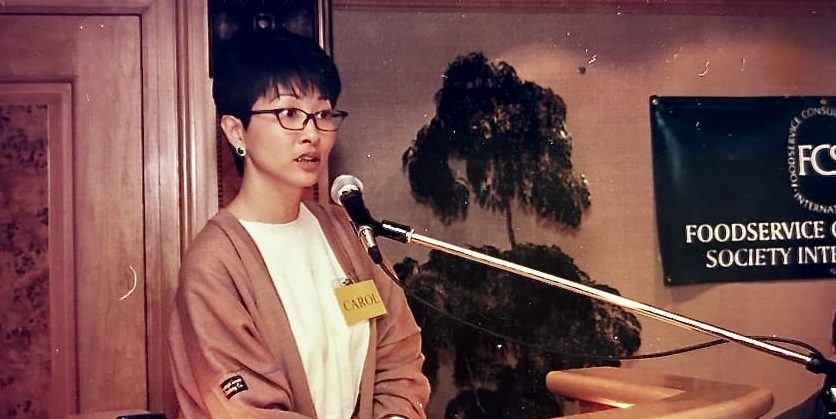Bullied from primary school to university, he is now friends with one of his bullies
by Christine Leow // June 21, 2021, 11:28 am
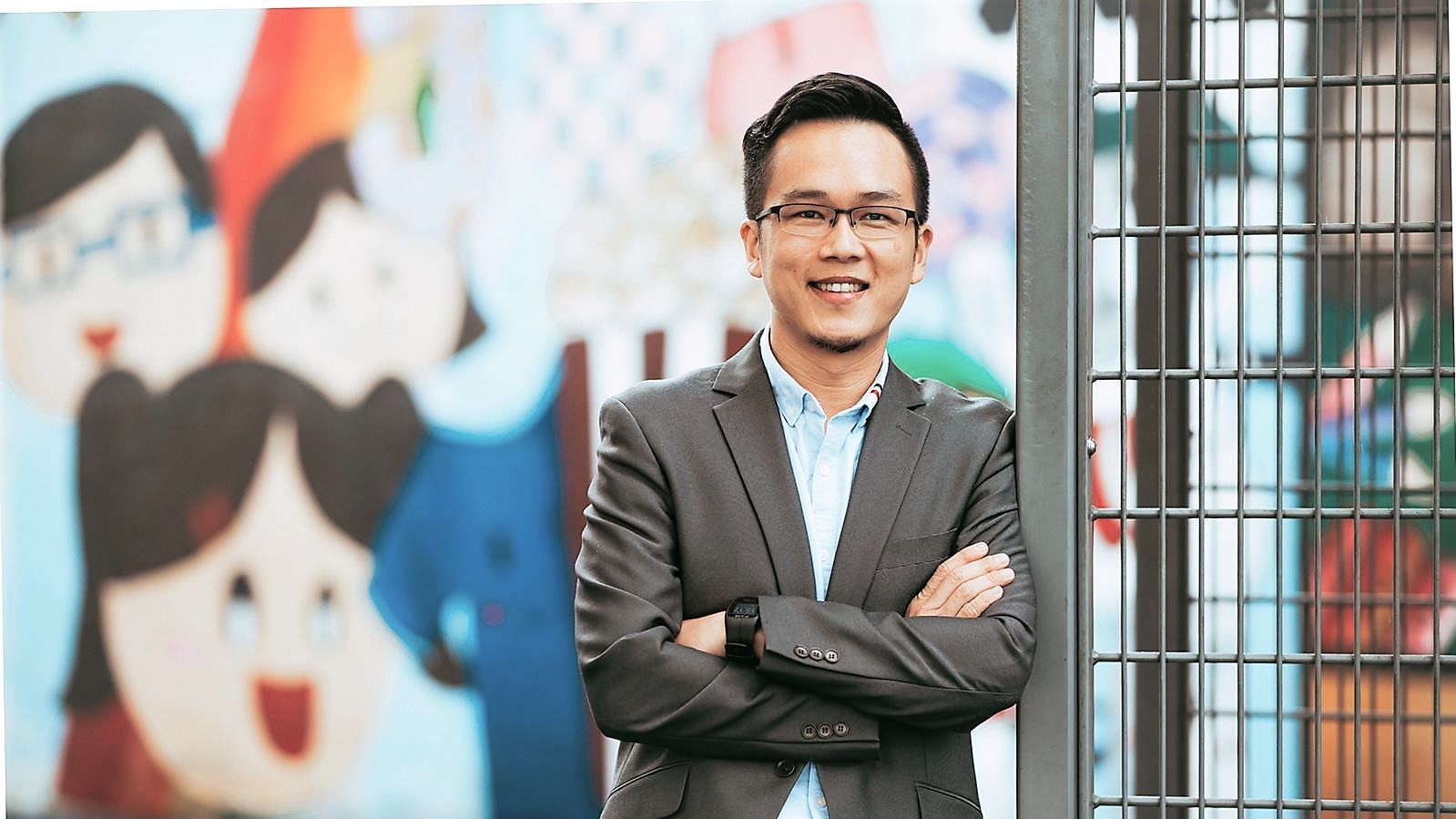
Chong Ee Jay now works with youths and counsels bullies as well as those who have been bullied, drawing from his own experiences. All photos courtesy of Chong Ee Jay.
It is hard to tell from looking at him now but Chong Ee Jay, 41, was once chubby.
“I loved to eat. That got me to sumo size. By Primary 5, I was 1.55m and 80kg.
“I would never be chosen. I was always ostracised.”
“I was one of those in the TAF club,” said Chong of the school Trim and Fit (TAF) programme for weight loss that was in place between 1992 and 2007.
Because of his size, he was the “laughing stock in school and class”.
“People would try to trip me when I was running or walking. I love football. But when we played sports, I would never be chosen. I was always ostracised.”
Alone and helpless
One incident, he recalled, was particular traumatic. It was during a Physical Education (PE) lesson in primary school. Chong had forgotten to bring his PE attire of tee-shirt and shorts.
“No one bothered defending me.”
“I was forced to wear my uniform and run around doing the same exercises as everyone.
“When I became sweaty, the uniform became very sticky and a bit translucent. It stuck to my body and revealed the curvature of my body.
“The whole class laughed at me. No one bothered defending me. I guess it was easier to join in the laughing and teasing. I felt terribly lousy.”
To make matters worse, Chong was not an outstanding student. “I didn’t do well in my exams. So, it was a double whammy.”
He suffered mostly in silence.
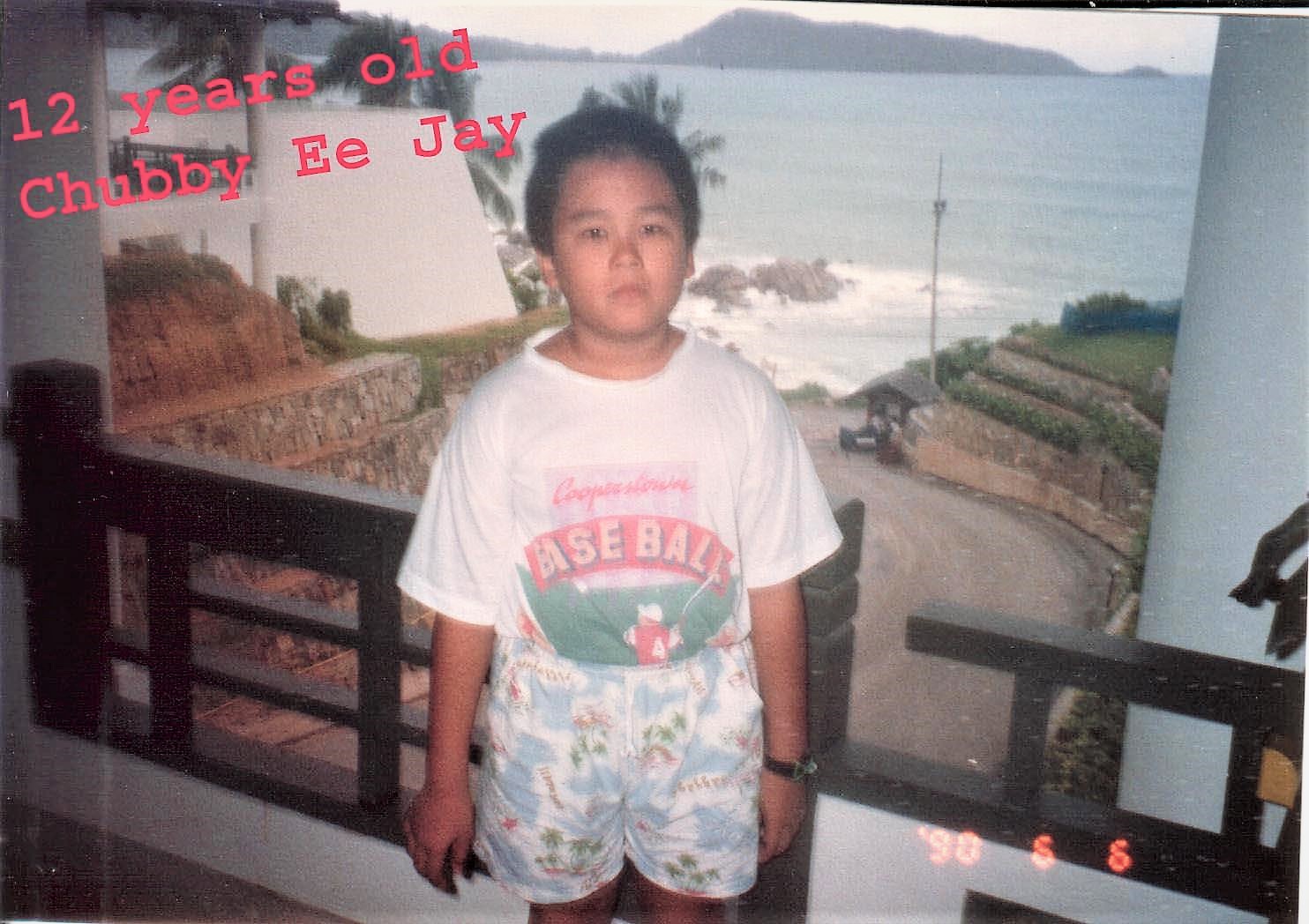
Chong was chubby for the better part of his childhood and teen years, and was mercilessly teased for his size.
“I recalled vaguely that I tried telling my teacher once. It didn’t work. The teacher brushed me aside and gave the impression that there were more important things in school than people teasing you, laughing at you or tripping you.
“I felt very hopeless then.”
“So, I told myself, ‘Tell for what? No point telling. Just suck it up and keep quiet.’”
Home was his safe haven. But even though his parents knew about the bullying, nothing was done.
“I remembered back then telling my parents about the bullying. They were feeling quite helpless, too. They told me, ‘Just don’t bother about it. It’s part and parcel of growing up.’
“I felt very hopeless then.”
New school, same bullying
When Chong graduated from primary school and was posted to a secondary school further away, he thought he could get a fresh start. After all, the odds of meeting people from his old school would be significantly lower.
He was picked on by older boys while walking home from school.
But the new school did not give him the reprieve from bullying that he sought.
“I was still fat. The girls were kinder and they would stand up for me a little bit.
“But though I had more friends who were more accepting of me, people who would defend and protect me, I still faced similar things – people laughing, people trying to trip me, being ostracised in games.”
Chong was no longer excluded from football games but he was still not one of the guys.
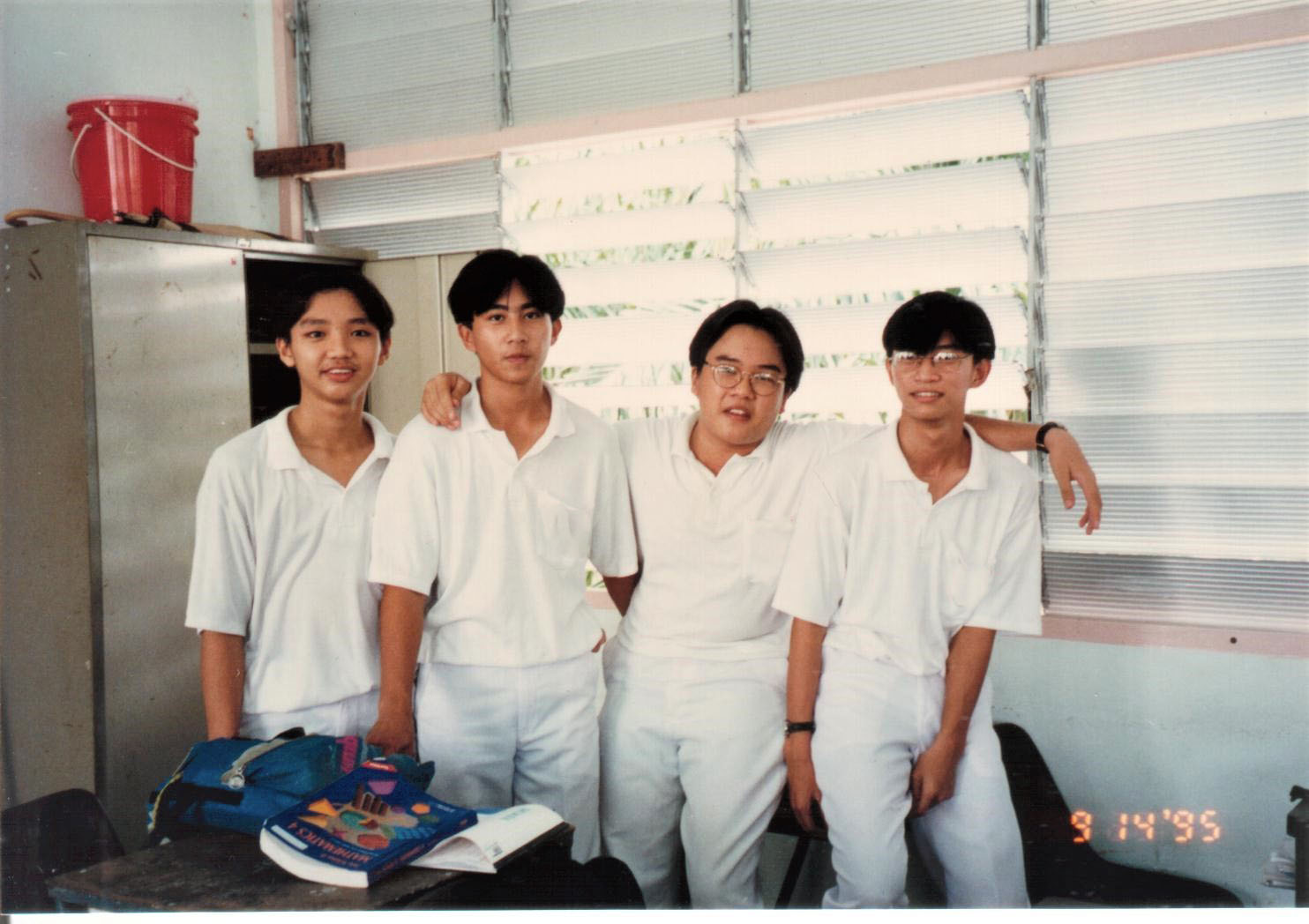
In secondary school, he was picked on and ostracised because of his weight. Looking back, Chong had a few friends who stood by him but he admitted that he was too shaken by the bullying to build on those friendships.
“They would ask me to be the goal-keeper. I remember some of the bullies would tell me, ‘The reason you play goal-keeper is because the width of your waist is just nice for blocking the goalpost.’”
He endured this for two years. In upper secondary school, the bullying subsided though Chong never knew why.
“Maybe they were more mature or maybe everyone was busy studying so the focus shifted.”
“The bullies would tell me, ‘The reason you play goal-keeper is because the width of your waist is just nice for blocking the goalpost.’”
But his ordeal was not confined within the school gates. Chong was bullied outside of school as well. He was picked on by older boys while walking home from school.
“Seven or eight of them surrounded me in a circle. I couldn’t run anywhere. When I tried to run, they pushed me back.
“I just stood there while they called me names and scolded me with vulgarities. They taunted me, threatened to hit me. They just wanted to make fun of me because of my size.
“It was the first time it was such serious bullying and from older boys who were taller and bigger.”
Chong remembered running home and telling his parents but was told to learn to protect himself or try to run away.
“It was just sweeping comments. I felt it was useless to talk about it.”
The harassment would continue. Things got serious enough for Chong’s parents to file a police report but that amounted to nothing more than making a statement. Not much else was done, said Chong.
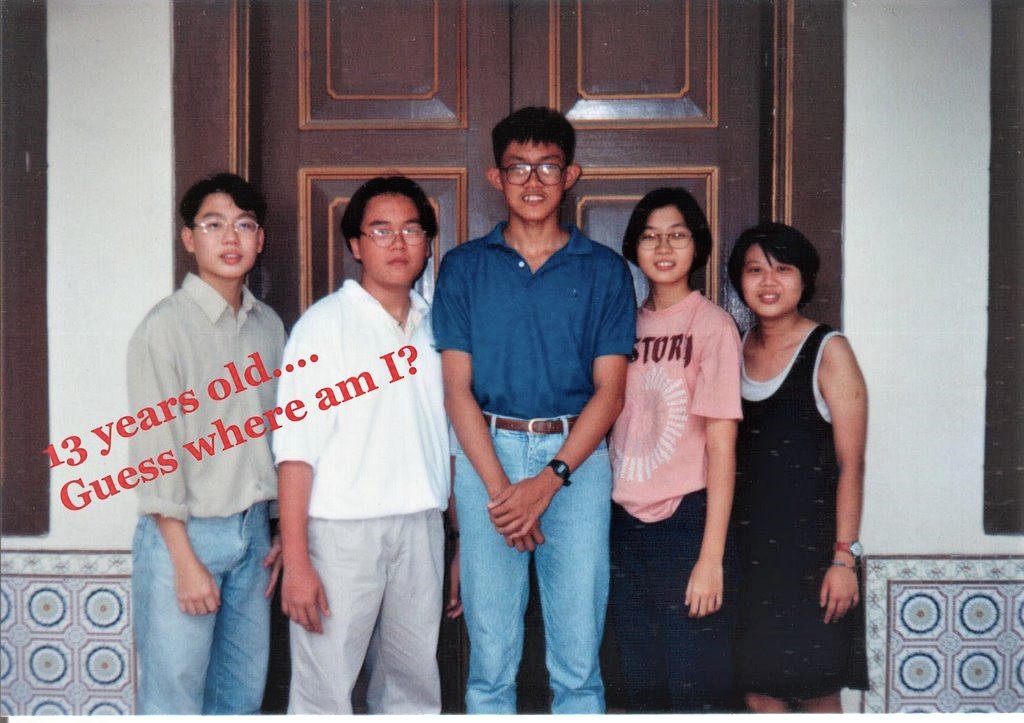
Chong (second from left) at a church camp in his teens. He would encounter Christianity again in university and become a believer.
To avoid the bullies, he changed his travel route. Instead of a direct bus, he took two buses home so he would not have to walk past the block of flats. What used to be a 10-minute ride became a half-hour journey that included a long walk home.
Things got serious enough for Chong’s parents to file a police report.
“I felt like: Why was I always being targeted?”
In junior college, Chong made an effort to lose weight because he “connected the dots” that the bullying was because of his size. Those two years were the best years of his life, he said.
Chong excelled at sport, representing his school in track and field as well as 10-pin bowling. He continued to play his favourite sport – football – but was no longer relegated to the goal-keeper position. He became a striker.
He did well in his studies and made friends.
Social media crisis
But the bullying would return. During his first year at university, Chong would encounter a whole new kind of bullying – cyber-bullying.
“I was totally clueless as to who was doing this to me.”
By then, he had found his groove. He was active in school, had lots of friends and was busy studying hard.
Then, friends started coming to him and asking him why he had posted nasty comments on social media. At first, Chong thought it was a mistake. But when more people confronted him, he decided to look into the matter.
That was when he discovered that someone had impersonated him on social media and had been posting scathing remarks about his friends using his name.
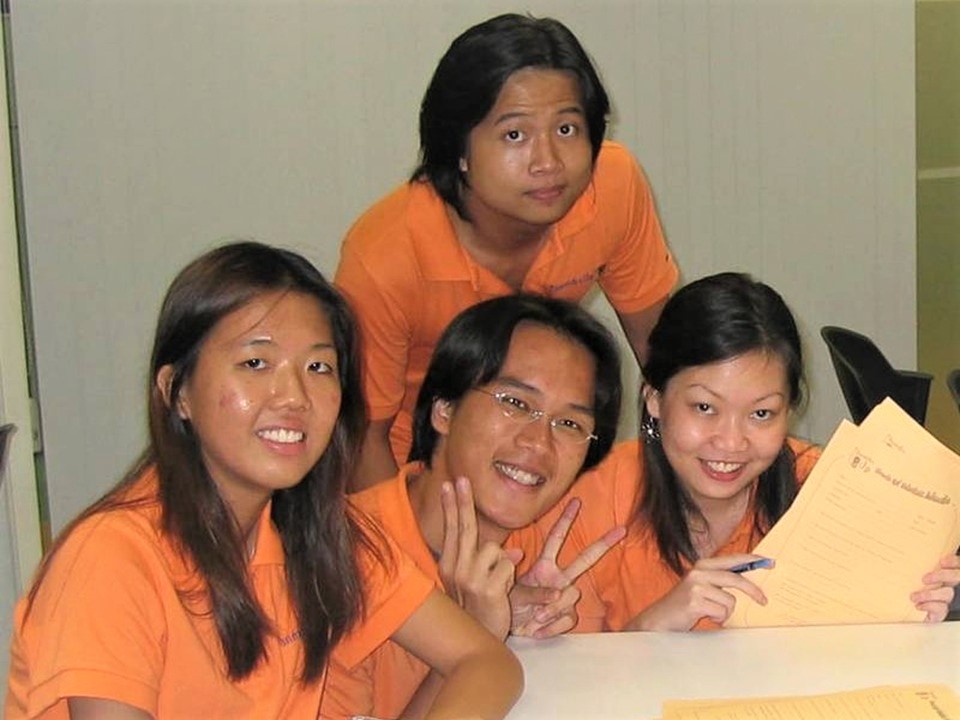
Chong (centre, seated) had many friends in university and was involved in campus activities. His popularity led to jealousy and cyber-bullying on the part of a friend from the same faculty.
“I was totally clueless as to who was doing this to me. There were no trails, no evidence. I couldn’t tell from the language who it was. Instead, all evidence pointed to me.”
His friends stood by him, defending him to others and vouching for his character. Acquaintances were not so kind.
Chong found himself helpless once more. There was nothing he could do to stop the cyber-bullying. It dragged on for months.
Then, a friend happened to see the computer screen of one of Chong’s friends. It looked to be opened to a replica of Chong’s social media profile page.
There was nothing he could do to stop the cyber-bullying.
“My friend told me he suspected that this guy was the one behind the impersonation. This guy was a friend. We were tutorial mates. We could talk. I wouldn’t have ever suspected it was him.
“I mulled over whether to confront him. My mentality was that if the issue goes away, I would not pursue it. I would let it die a natural death.”
But the nasty posts persisted. Chong believed that the cyber bully may have caught on to his suspicions and retaliated.
“To me, it was no coincidence. This friend warned me and then this thing happened.”
Older now and more confident, Chong decided to confront his bully. But the man denied all accusations and started avoiding Chong.
Meanwhile, the cyber-bullying intensified. More nasty posts and comments from the fake account surfaced.
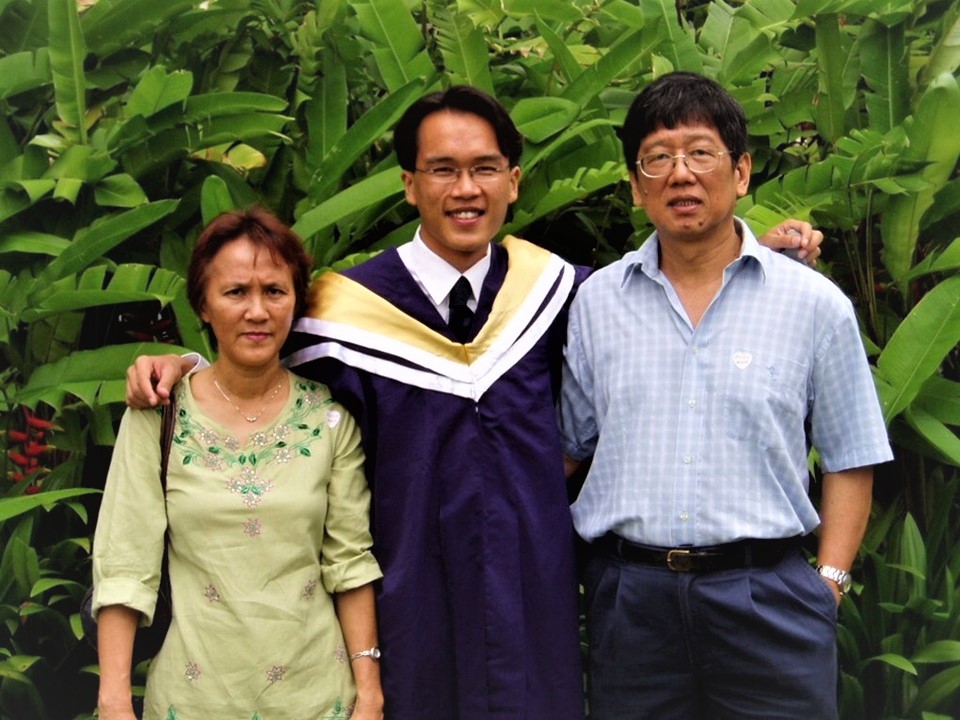
Chong with his parents at his graduation.
Chong confronted his bully once more and, this time, the man admitted that he had been behind it all. In an ironic twist, it transpired that Chong’s bully had been jealous of his popularity.
“I went to his social media page and posted nasty things.”
Even though he was warned, the bullying continued. This being nearly two decades ago, there was no provision for prosecution of cyber-bullying.
“By then, I was a Christian. But I was still angry, fuming, raging. It was such a childish reason.
“So many people developed a bad impression of me because of him. It affected my working relationship within the faculty. It affected my reputation among my cohort.”
In an attempt to stand up for himself, Chong retaliated.
“I went on a rampage. I was emotionally a loose cannon. I went to his social media page and posted nasty things. I said negative things about him to clear my name.”
Prompted to forgive
In the end, the matter was reported to university authorities, and both men got hauled into the office of the lecturer in charge of pastoral care.
“That was a wake-up call for me. I realised that, when I tried to defend myself like that, I was equally a bully.
“Although I was vindicated because the bullying was brought to light in front of the authorities, I also felt lousy because I was in the wrong.”
“I would have lost this friendship had it not been for God.”
The bullying ended and so did whatever shred of friendship that was left.
But Chong’s heart was not at peace. Months later, while attending a church seminar that required him to forgive those who had wronged him, Chong became personally convicted.
“I felt the Holy Spirit putting a spotlight on this. It didn’t matter how the other party responded to me. I had to do my part to forgive and ask for forgiveness for doing wrong.
“This was an opportunity to demonstrate Christ-likeness.”
Chong reached out to his bully via text, asking to meet.
“When he didn’t reply, I thought: Heng ah (so lucky), let’s move on.”

As a counsellor, Chong advises those who are being bullied to consistently and persistently stand up to their bullies, and to talk to those in authority about it.
But the burden to set things right did not lift. “It really must be from God nudging my spirit to try again.
“So, I told God, ‘I’ll try this again and if it doesn’t work, then enough.’”
The man surprised Chong by agreeing to meet. Over coffee, they chatted.
“I took ownership to apologise for retaliating. I wasn’t there to accuse him. He was very surprised. He thought I would come with guns blazing to whack him.
“He also apologised for his childish behaviour and doing all this against me and affecting my friendships with people and my reputation.”
“He saw the beauty behind the story, how divine and interestingly it turned out.”
The two made peace and, within a year, would find themselves put together as project mates. “We worked well together.”
Some 20 years later, they are still friends. “I attended his wedding! I would have lost this friendship had it not been for God,” said Chong.
Chong has seen God work in other ways as well. He became a Christian in university and credits his faith community for helping him heal.
“In primary and secondary school, the ecosystem was very scary. I lived with a lot of insecurity.
“As I grew up, I found a healthy and positive support system that demonstrated to me that there are safe spaces around.”
Now the deputy head of FamChamps Singapore, a community youth movement to promote the concept of family among the young, as well as a counsellor and champion of families and digital literacy, Chong believes his experiences have been used by God.
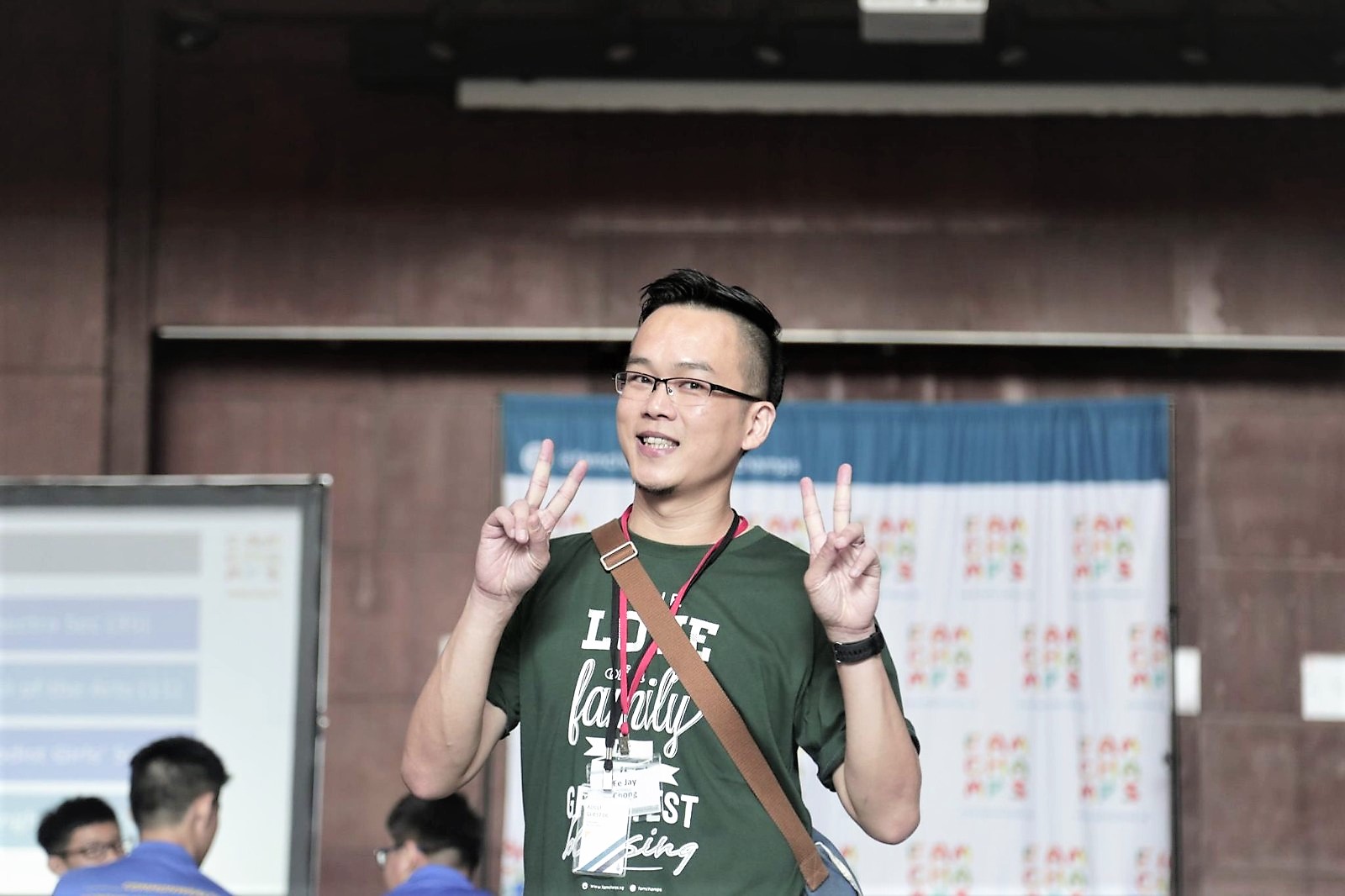
Chong believes that his experiences with bullying have given him a better understanding of youths and led him to a career working with them.
“In the grander scheme of things, I can understand why I choose to work with youths and families because I have gone through these incidents, what youths commonly go through these days.”
As part of his job, Chong often shares his life story. Out of respect, he did ask his former bully for permission before sharing his encounters with bullying. The man considered it and agreed.
“He saw the beauty behind the story, how divine and interestingly it has turned out.”
Salt&light Family Night: How do I deal with bullying?
In March this year, ITE expelled a student caught on video bullying another.
Last December, the case of a 14-year-old student who endured sustained bullying in school and online made the news. The girl has dyslexia.
She was so distraught by the bullying that she attempted suicide and ended up being hospitalised for 12 days. The teen even handwrote a letter to Prime Minister Lee Hsien Loong urging him to improve the way schools and the Ministry of Education deal with bullying.
Why are the young picking on their own? Why do they target the vulnerable? How can we – families, schools, society, the church – help both the victim and the bully?
Joining hosts Carol Loi and Alex Tee are this guest panel:
- Chong Ee Jay
Chong is the Deputy Head of FamChamps Singapore, a values-driven student initiative that promotes families and aims to raise future family champions. A counsellor as well as champion of families and digital literacy, Chong has personal experience with bullying. - Andrew Kang
Kang, a father of four, who was a former vice principal and head of department in charge of pupil management. He is now CEO of Tcher Online. - Jocelin Tan
A mother whose daughter had endured bullying, and who has journeyed with families who have experienced the same.
Join hosts Carol Loi and Alex Tee as they navigate this difficult topic together with the panellists and answer your questions on bullying.
Date: Tuesday, June 29, 2021
Time: 8.30m-10pm
Cost: Free
Register at: http://bit.ly/SLFamilyNight29June
How to handle bullies
Chong Ee Jay shares tips on what to do when bullied:
1. Speak up
Keep speaking up. Don’t give up. Tell parents, teachers and authorities till they hear you.
“I would tell my younger self to be more consistent and proactive in speaking up. I did try but gave up when I encountered difficulties.”
2. Talk about your emotions
Don’t just report the bullying, share how it made you feel and how you would like to be helped.
“When I told my parents, I just reported the incident. I cried but I didn’t go to the point of telling them that I really felt very sad and I was very nervous.
“The more emotional part of me didn’t come out in words. It came out in tears. I should have said, ‘I wish you could do this for me.’”
3. Make a stand
“Say you don’t appreciate the taunts. Be upfront about it, be confident about it, be consistent.
“Don’t back down because the person is louder and fiercer. The victim’s mentality is that I try to push back and they retaliate, so I am wrong and I give up.”
Chong said, in truth, it means something right is being done which is what enrages the bully and causes him to rise up more.
4. Have a community
Hang out more with like-minded friends.
“Back then, I withdrew completely rather than look for like-minded friends who didn’t think badly of me.
“There were one or two who tried but I was too emotionally distraught to do anything about it.”
5. Know you are supported
“Back in my time, I didn’t know there was a school counsellor. Now, there are people in authority you can speak with.
“Counsellors and teachers are more mindful of bullying in schools and the emotional impact on students, and are more equipped to handle it.”
MORE STORIES ON BULLYING:
Ask Salt&Light: Should I leave a job that is making me unhappy?
We are an independent, non-profit organisation that relies on the generosity of our readers, such as yourself, to continue serving the kingdom. Every dollar donated goes directly back into our editorial coverage.
Would you consider partnering with us in our kingdom work by supporting us financially, either as a one-off donation, or a recurring pledge?
Support Salt&Light
